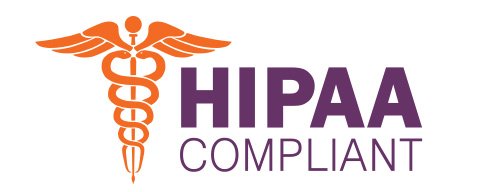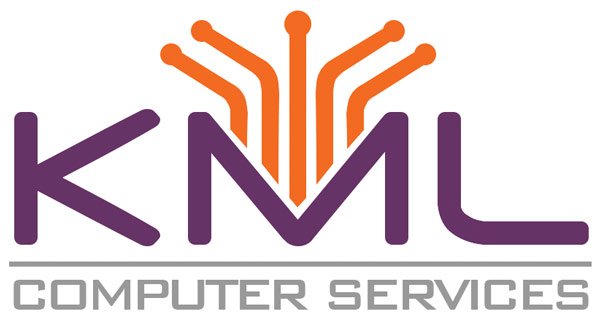
HIPPA Compliance and Email Communication
HIPAA compliance for email has been a hotly debated topic since changes were enacted in the Health Insurance Portability and Accountability Act (HIPAA) in 2013. Of particular relevance is the language of the HIPAA Security Rule; which, although not expressly prohibiting the use of email to communicate Personal Health Information (PHI), introduces a number of requirements before email communications can be considered to be HIPAA compliant(*).
Understanding HIPAA Email Rules
HIPAA-compliant email rules require covered entities to implement access controls, audit controls, integrity controls, ID authentication, and transmission security have to be fulfilled in order to:
- Restrict access to PHI
- Monitor how PHI is communicated
- Ensure the integrity of PHI at rest
- Ensure 100% message accountability, and
- Protect PHI from unauthorized access during transit
Some HIPAA covered entities have put forward the argument that encryption is sufficient to ensure HIPAA compliance for email. However, HIPAA email rules do not just cover encryption. Encryption alone does not fulfill the audit control requirement of monitoring how PHI is communicated or the ID authentication requirement to ensure message accountability.
Furthermore, some required functions – such as the creation of an audit trail and preventing the improper modification of PHI – are complex to resolve. So, although emails can be HIPAA compliant, it requires significant IT resources and a continuing monitoring process to ensure that authorized users are communicating PHI in adherence with policies for HIPAA compliance for email.
(*) HIPAA compliance for email is not always necessary if a covered entity has an internal email network protected by an appropriate firewall.
HIPAA Email Encryption Requirements
HIPAA email rules require messages to be secured in transit if they contain ePHI and are sent outside a protected internal email network, beyond the firewall.
As previously mentioned, encryption is only one element of HIPAA compliance for email, but it will ensure that in the event of a message being intercepted, the contents of that message cannot be read, thus preventing an impermissible disclosure of ePHI.
It should be noted that encryption is an addressable standard in the HIPAA Security Rule for data at rest and HIPAA compliance for email. That means encryption is not ‘required,’ but that does not mean encryption can be ignored. Covered entities must consider encryption and implement an alternative, equivalent safeguard if the decision is taken not to use encryption. That applies to data and rest and data in transit.
A covered entity must decide on whether encryption is appropriate based on the level of risk involved. It is therefore necessary to conduct a risk analysis to determine the threat to the confidentiality, integrity, and availability of ePHI sent via email. A risk management plan must then be developed, and encryption or an alternative measure implemented to reduce that risk to an appropriate and acceptable level. The decision must also be documented. OCR will want to see that encryption has been considered, why it has not been used, and that the alternative safeguard that has been implemented in its place offers an equivalent level of protection.
Encryption is an important element of HIPAA compliance for email, but not all forms of encryption offer the same level of security. Just as the method of encryption is not specified in HIPAA to take into account advances in technology, it would not be appropriate to recommend a form of encryption on this page for the same reason. For example, a covered entity could have used the Data Encryption Standard (DES) encryption algorithm to ensure HIPAA compliance for email, but now that algorithm is known to he highly insecure.
HIPAA-covered entities can obtain up to date guidance on encryption from the National Institute of Standards and Technology (NIST), which at the time of writing, recommends the use of Advanced Encryption Standard (AES) 128, 192 or 256-bit encryption. That could naturally change, so it is important to check NISTs latest guidance before implementing encryption for email. NIST has published SP 800-45 Version 2 – which will help organizations secure their email communications.
Penalties for HIPAA Email Violations
Penalties are per violation per year
Could not have avoided with reasonable care From $100 To $50,000
HIPAA email violation despite reasonable care From $1,000 To $50,000
Willful Neglect – Corrected within reasonable time From $10,000 To $50,000
Willful Neglect – Not corrected From $50,000 To $1,500,000
How Secure Messaging Resolves Issues with HIPAA Compliance for Email Communication
Secure messaging is an appropriate substitute for emails as it fulfills all the requirements of the HIPAA Security Rule without sacrificing the speed and convenience of mobile technology. The solution to HIPAA compliance for email uses secure messaging apps that can be downloaded onto any desktop computer or mobile device.
Authorized users have to log into the apps using a unique, centrally-issued username and PIN number that then allows their activity to be monitored and audit trails created. All messages containing PHI are encrypted, while security mechanisms exist to ensure that PHI cannot be sent outside of an organization´s network of authorized users.
Administrative controls prevent unauthorized access to PHI by assigning messages with “message lifespans”, forcing automatic logoffs when an app has not been used for a predetermined period of time, and allowing the remote deletion of messages from a user´s device if the device is lost, stolen or otherwise disposed of.
The Benefits of Secure Messaging
The primary benefit of secure messaging when compared to email is the speed at which people respond to text messages. Studies have determined that 90% of people read a text message within three minutes of receiving it, whereas almost a quarter of emails remain unopened for forty-eight hours.
The communications cycle is further accelerated by the mechanisms to enforce message accountability. These significantly reduce phone tag, allowing employees more time to attend to their duties. In a healthcare environment, this means less time waiting by a phone and more time providing healthcare for patients.
This acceleration of the communications cycle also reduces the time it takes to admit or discharge a patient, how long it takes for prescription errors to be resolved, and the length of time it may take for invoices to get paid. Ultimately, secure messaging is a lot more effective than email, and less trouble to implement than resolving HIPAA compliance for email.
Encrypted Email Archiving for PHI
In as much as the implementation of a secure messaging solution is an appropriate alternative to email, covered entities are required to retain past communications containing PHI for a period of six years. Depending on the size of the covered entity, and the volume of emails that have been sent and received during this period, the retention of PHI can create a storage issue for many organizations. The solution to this potential problem is encrypted email archiving for PHI.
Vendors providing an email archiving service are regarded as Business Associates, and have to adhere to the same requirements of the HIPAA Security Rule as covered entities. Therefore, their service has to have access controls, audit controls, integrity controls, and ID authentication in order to ensure the integrity of PHI. In order to comply with HIPAA email rules on transmission security, all emails should be encrypted at source before being sent to the service provider’s secure storage facility for archiving.
The biggest advantage of encrypted email archiving for PHI is that, as the emails and their attachments are being encrypted, the content of each email is indexed. This makes for easy retrieval should a covered entity need to access an email quickly to comply with an audit request or to advance discovery. Other advantages include the release of storage space on a covered entity’s servers and that encrypted email arching for PHI can be used as part of a disaster recovery plan.
Get HIPAA Compliance and Security For Your Business with a Managed Service Provider
We have over 14 years providing technology solutions to the healthcare industry. We know the importance of understanding your vulnerabilities and defenses so in addition to providing the best technology solutions and support, KML Computer Services educates doctors and staff as well.
Since KML has had years of experience with the Healthcare industry, we are HIPAA certified and specialize in keeping medical and dental offices educated, safe, and up and running efficiently. We take care of your technology issues so you don’t have to.
Contact us to get started.
Mark Rossi is president of KML Computer Services. Since 1996 he has been immersed in the technology field, working in various positions, from hardware technician and network manager to network engineer and IT consultant.

